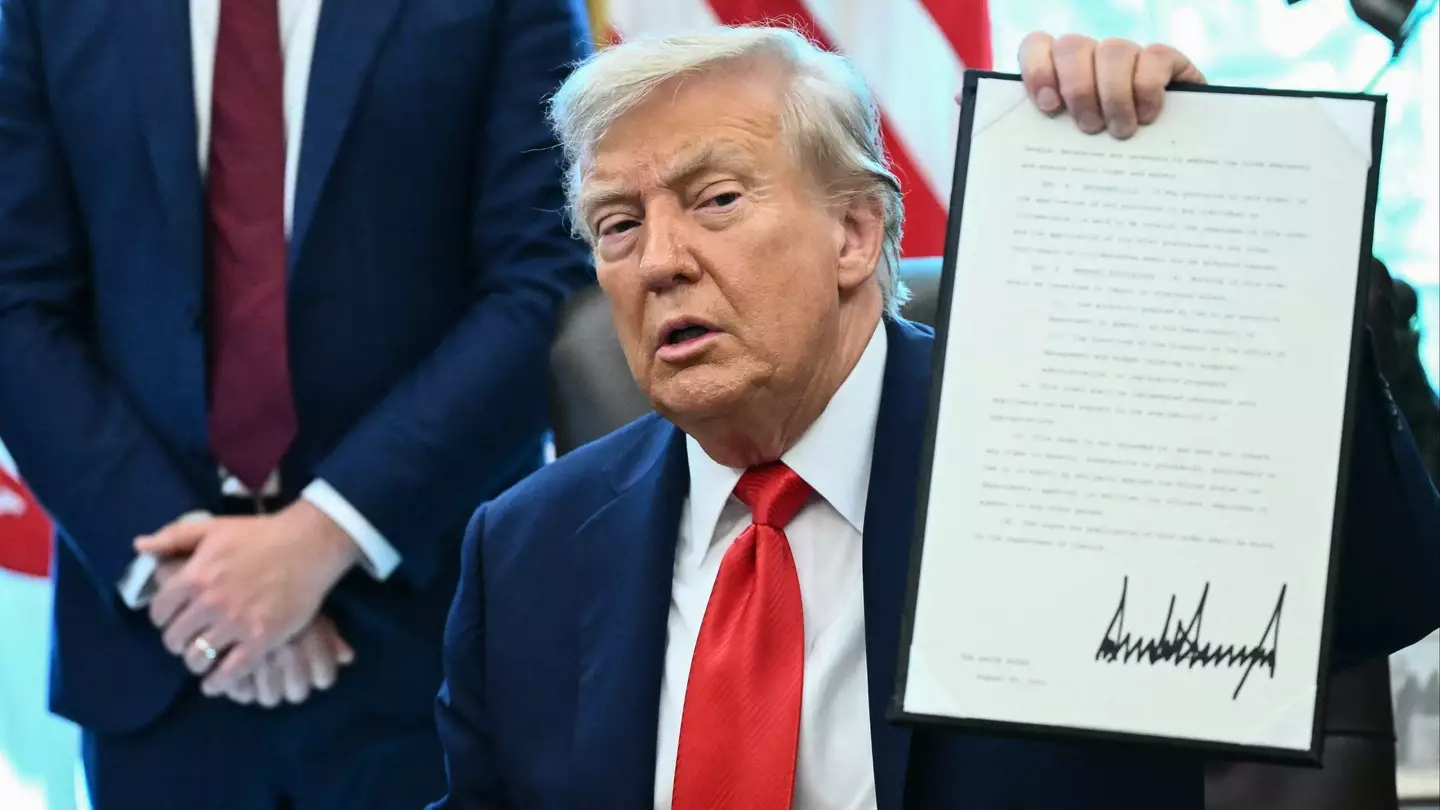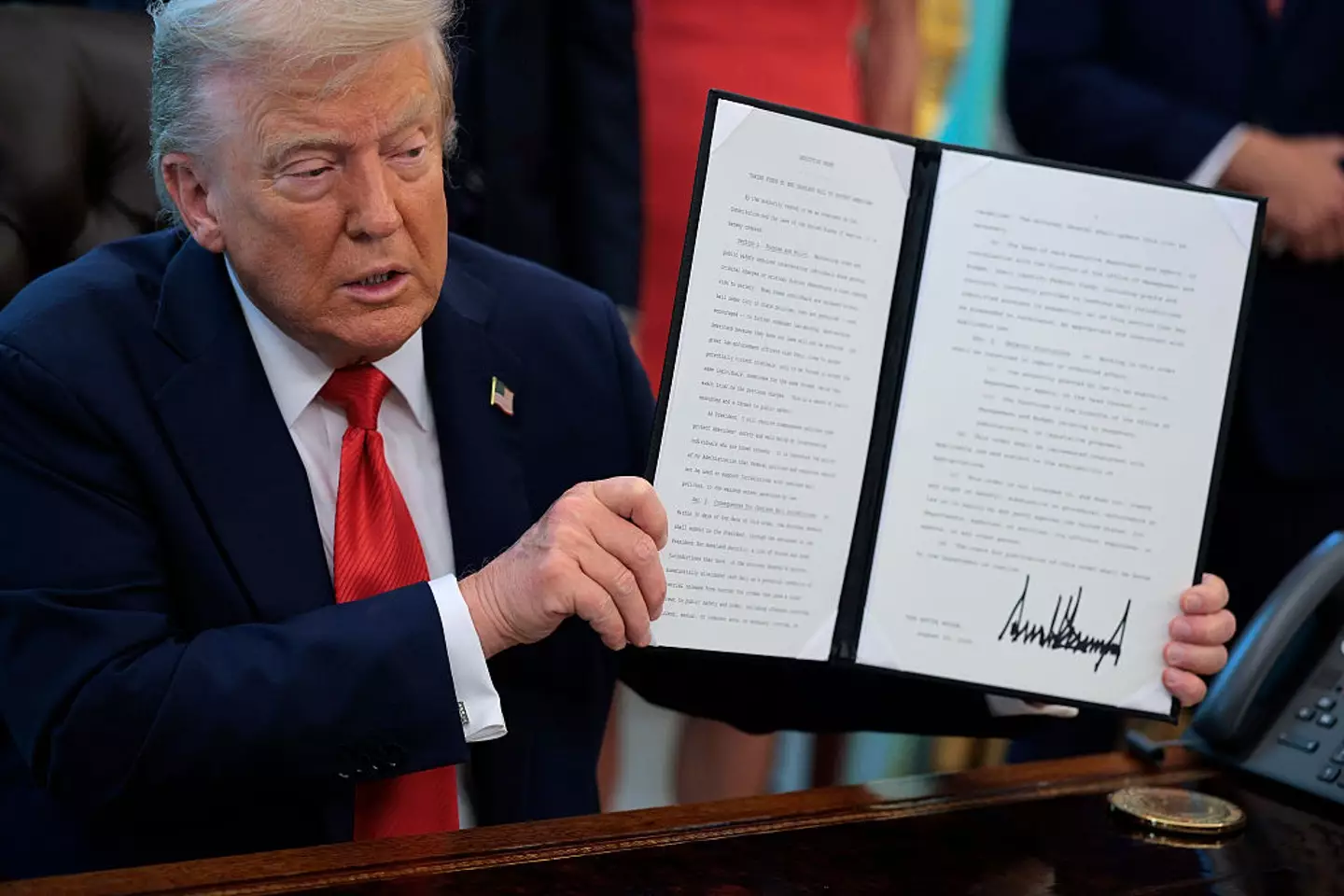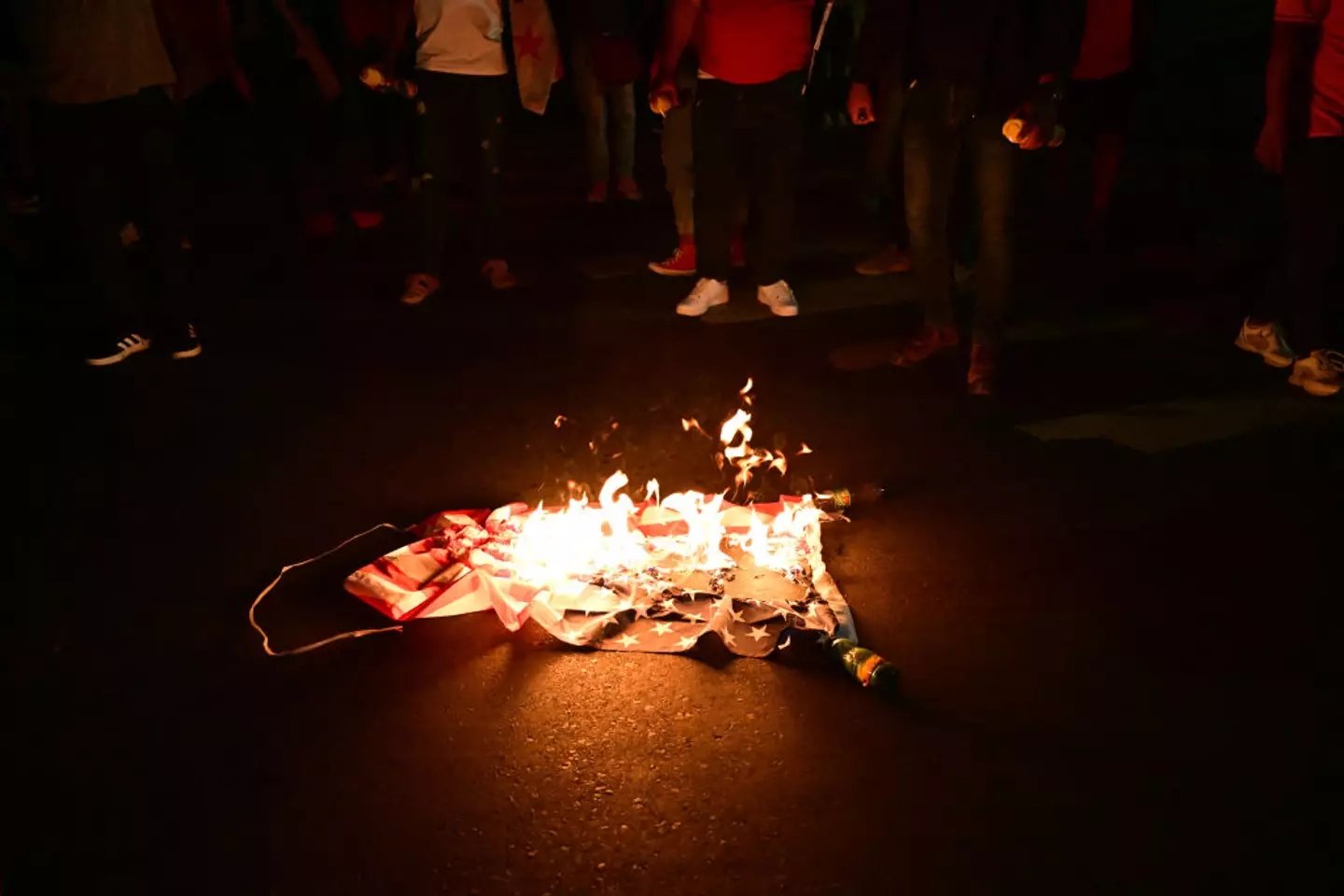
Donald Trump is facing rare criticism from conservatives following the announcement of his latest controversial executive order.
As we know, the 79-year-old Republican is far from shy when it comes to new legislation, after passing dozens upon dozens of executive orders since his inauguration back in January.
The Federal Register has confirmed Trump has signed 192 executive orders throughout his second term in office with the latest being all to do with flag-burning following months of protesters burning American flags at various anti-Israel and anti-ICE demonstrations.
Many conservatives pushed back against such an order, largely defending flag-burning as a First Amendment right.
Advert
But what exactly does this new executive order mean, how will it be enforced, and what has the White House said about it following the heated discussion yesterday's signing brought about online?

What is the new executive order?
A new executive order on 'Prosecuting Burning of the American Flag' was issued yesterday (25 August).
Trump's order reads: "Our great American Flag is the most sacred and cherished symbol of the United States of America, and of American freedom, identity, and strength. Over nearly two-and-a-half centuries, many thousands of American patriots have fought, bled, and died to keep the Stars and Stripes waving proudly.
"The American Flag is a special symbol in our national life that should unite and represent all Americans of every background and walk of life. Desecrating it is uniquely offensive and provocative. It is a statement of contempt, hostility, and violence against our Nation — the clearest possible expression of opposition to the political union that preserves our rights, liberty, and security.
"Burning this representation of America may incite violence and riot. American Flag burning is also used by groups of foreign nationals as a calculated act to intimidate and threaten violence against Americans because of their nationality and place of birth."

Consequences of flag burning under the new executive order
The order went on to state: "Notwithstanding the Supreme Court’s rulings on First Amendment protections, the Court has never held that American Flag desecration conducted in a manner that is likely to incite imminent lawless action or that is an action amounting to 'fighting words' is constitutionally protected."
Trump added that his administration will 'act to restore respect and sanctity to the American Flag' as well as 'prosecute those who incite violence or otherwise violate our laws while desecrating this symbol of our country, to the fullest extent permissible under any available authority'.
Measures to 'combat desecration of the American flag'
The Attorney General should prioritise prosecuting flag desecration that violates existing content-neutral laws (e.g., violent crimes, hate crimes, civil rights violations, property crimes, conspiracy, aiding/abetting).
Federal agencies should refer cases to state/local authorities when local laws may apply (e.g., disorderly conduct, property damage, open burning restrictions).
The Department of Justice may pursue litigation to clarify First Amendment exceptions related to flag desecration.
The Secretary of State, Attorney General, and Secretary of Homeland Security may deny, revoke, or terminate visas, immigration benefits, naturalisation, or residency for foreign nationals who engage in flag desecration.

Criticism of Trump's latest executive order
A number of people have since taken to X to share their thoughts on the new executive order with evolutionary biologist Colin Wright writing: "Banning flag burning is absurd. It’s anti–free speech and peak snowflake behavior. I would never burn the American flag because of what it symbolizes to me. But the act of banning the burning of it runs more contrary to American values than the burning itself ever could."
Meanwhile, radio host Jesse Kelly quipped: "I would never in a million years harm the American flag. But a president telling me I can’t has me as close as I’ll ever be to lighting one on fire. I am a free American citizen. And if I ever feel like torching one, I will. This is garbage."
"Flag burning is vile but the government has no right to control speech or expression," fellow radio host Dana Loesch added.
Conservative commentator Erick Erickson chimed in: "This is actually not brilliant. While I agree with the sentiment, it is unfortunately well settled constitutional law that burning the flag is a matter of free speech and the executive does not get to create crimes."
"I know nothing matters and you aren’t allowed to criticize your own side, but I’d like to return to a time when presidents didn’t sign unconstitutional executive orders for show," RedState writer Bonchie penned.

Defense of Trump's latest executive order
Many other MAGA heads, however, defended the president's latest actions with many saying that the order’s text refers only to specific situations involving flag burning.
"POTUS explained this is not a blanket ban. This is a commitment to investigate flag burning incidents that occur in a ‘terroristic’ context. If it is determined the flags were burned in provocation of violence, then criminal sentencing kicks in. It's not a total ban," podcast host Kira Davis penned.
"Ok let’s clear this up. I was opposed to Trump’s Executive Order at first, but then I read the full text…It does NOT criminalize burning the American flag. And it does NOT infringe on our freedom of speech. It criminalizes flag burning *only* when it’s intended to incite violence or when it’s accompanied by other lawless action," writer Kristen Mag put forward.
What has the White House said?
In a statement to Tyla, White House spokesperson Taylor Rogers said: "President Trump will not allow the American Flag – a special symbol of our country’s greatness – to be used as a tool to incite violence and riots that jeopardize the safety of everyday Americans.
"President Trump will always protect the First Amendment, while simultaneously implementing commonsense, tough-on-crime policies to prevent violence and chaos."
Topics: Donald Trump, Explained, News, Politics, Social Media, US News